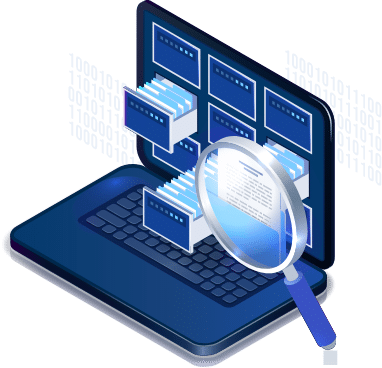Part of doing business – whether locally or worldwide involves ensuring you have the right customer address data. Without a strong address standardization process in place, your analytics as well as marketing, logistics, delivery, and business correspondence operations will be ineffective.
So how can you improve the quality of your address data? Here’s everything you need to know.
How To Standardize Address Data?
Many companies use address standardization services to standardize data, however, most of these services simply match the address to the USPS official format and validates the authenticity of the address. In practice though, the matching of your customer address to the USPS is an after-process. The first step to standardizing address data is parsing, formatting, cleaning, and deduping data. Everything else follows later. Before you can validate your data with the USPS, you must sort it according to the USPS guidelines.
The problem with address data is that people use multiple formats to write to them. One address can be written in five different ways by five different people. In each of these, there will also be a higher chance of spelling and directional errors.
Here’s an example of one address written differently by three people and a common problem with each.
| Person | Address | Spelling Mistakes | Abbreviations | Incomplete Info | Inaccurate Info | Format issues |
| 1 | 139 bryan avenue, minneapolis, Minnesota, 55415 | ✓ | ||||
| 2 | 139 Brayan Ave, MN, 55415 | ✓ | ✓ | ✓ | ||
| 3 | 140 Bryan Ave, Minneapolis, MN, 55415 | ✓ | ✓ |
Also note that each version of this address will be recorded as a new entry in the system which means you have duplicate records to deal with along with the other problems.
An address standardization software will fix these issues, dedupe this data, and validate the correct version with the USPS database to give you the right address data.
You can visit this post to know more about the address standardization and validation process.
Three Important Reasons for Address Standardization
There is no one reason to address standardization. It affects key operational areas of your business. From marketing to sales, analytics to reporting, ROI calculation to market share data – address data plays a key role in giving you the insights you need to lead your business to growth.
That said, over the course of our experience, clients who used our address standardization service do it for one key reason – to consolidate customer data, get accurate customer analytics & use that intelligence for enhancing customer satisfaction through personalization services.
Let’s break this down into five key components.
Consolidating Data: Businesses are using a plethora of apps to capture customer data. For example, the marketing department may be using web forms to capture addresses, while the customer service department may be using the organization’s ERP system to manage transaction data.
The same customer has interacted with the organization via the web form, but their information has been dispersed. Moreover, the address data the marketing team has is not necessarily the exact address the customer service team may have. So when marketing will be sending out promotional letters or run personalization campaigns, they may be using an old, inaccurate, or outdated address.
Similarly, if the executive team wants key insights and analytics to make strategic business decisions, they will be dealing with conflicting data. Hence, this brings about the need to consolidate data from multiple sources and create a unified source of truth.
Address data is the biggest obstacle in this process which is why it’s necessary to standardize address data before the data can be used for matching or deduplication.
Analytics for Business Intelligence: In the age of big data, address information is critical business intelligence. Companies use this information to derive key information about their audience’s demographics and make strategic business decisions such as expansions, personalized services, store discounts, etc.
International restaurant chains like McDonald’s for example use address data to identify potential spots for launching a new branch. Without an accurate presentation of this data, it would be extremely difficult for a business to understand its audience and make data-driven decisions.
Customer Personalization: These days businesses are big on customer personalization. Organizations are spending millions of dollars in acquiring big data and using it to deliver their audience personalized services. With address data, companies can gain deeper insight into their audience types, spending habits, and preferences.
People living near downtowns, for example, expect express food delivery. A food retailer that decides to launch an express delivery service will need to know the ratio of customers living in downtown areas vs customers living further way to justify the efficient use of express delivery. Address data also helps in local marketing which means targeted promotional campaigns or discount offers for people belonging to various organizations can be made possible with accurate address data.
It is noteworthy to mention here that address data is one of the most difficult forms of messy data. Not only do you have to correct errors and formatting issues, but you also have to make sure it’s not duplicated and that it follows a standardized guideline. This is why, address standardization and validation is offered as a separate function, service or module by a data quality solutions provider.
Why is Address Data so Important
Let’s explain this with an education institution case study.
An education institute needed to consolidate its student data to meet requirements for a lunch program grant. In order to do this, the institute had to show that a certain percentage of its students come from impoverished areas. For this purpose, the institute required accurate data but found that most of the data collected over the years were duplicated, obsolete or inaccurate. Before the institute could ask for a grant, it had to fix its data, dedupe data, and ensure its integrity and accuracy to qualify for the grant.
Address data not only benefit corporates but also schools and government institutes especially in cases where grants, studies, and research objectives need to be met.
Additional important reasons why address data is so crucial includes:
Reduces Mailing Costs: Every year millions of dollars are wasted in return mails. All this mostly because companies never get the time to sort their address data and ensure that it meets standards. Most of the time, quality of address data is ignored, and companies leave it up to the post office to sort out address issues, but even at the postal office, bad address data is a significant expense.
Efficient Business Operations: If your team has the right access to information, they will perform better. Your marketing and promotional campaigns will return a better ROI. Your business operations will be more efficient, and your team will be in a better position to do their jobs well.
Customer Satisfaction: Quite an obvious point here, but deliver the right parcel to the right customer and you earn their trust right there. Do it wrong and there goes a bad review online!
Don’t neglect your address data and don’t expect the customer or the post office to give you accurate details. You must have an address data management plan in place and ensure that your teams have the right tools to regularly clean this data and make efficient use of it.
This brings us to an important point:
Using Address Standardization Tools or Solutions
It’s technically impossible to fix messy address data manually. Moreover, with business users now dealing directly with data, it makes sense for them to use a tool that can help them sort this data without having to rely on IT or on learning a new language to make necessary edits.
Data Ladder’s DataMatch Enterprise has a dedicated Address Standardization module that allows business users to integrate, clean, dedupe, and consolidate address data from multiple sources. Moreover, being a CASS Certified solutions provider, we always have an updated version of the address database from USPS that lets you validate your addresses and ensure its accuracy.
A key function in the process of address standardization is data matching and very few services exist that offer a 90 – 100% accuracy in data matching. Those that do exist, such as IBM or Oracle and SAS cost a fortune and are designed for large multinational organizations that want more than just address data management.
DataMatch Enterprise, therefore, is aimed at organizations that want a simpler solution to be used on their desktop or cloud platforms. Once the software is downloaded, the user gets one license per PC which they can use to clean data from over 150+ data integration options. Whether it’s address data on Facebook or whether it’s on SalesForce, DataMatch Enterprise lets you seamlessly integrate third-party data to match, dedupe, and fix your address errors.
Don’t let bad address data ruin your marketing efforts, disrupt your business operations, and offend your customers. Use the right solution, give your team data they can trust, and work with and reduce the costs that come with bad data.














































